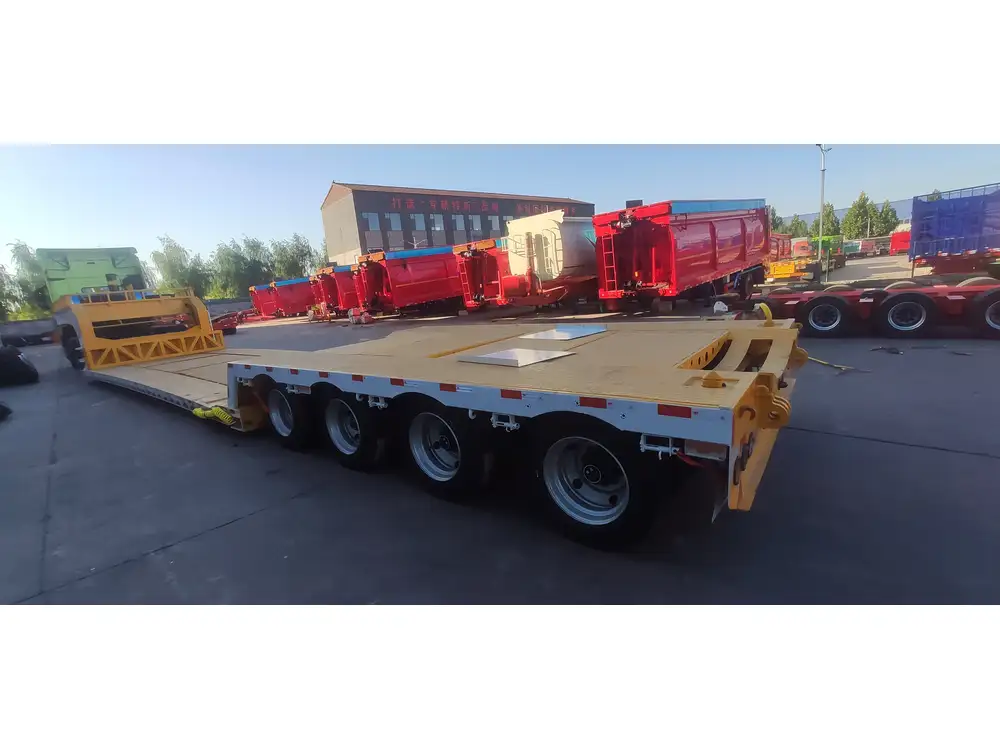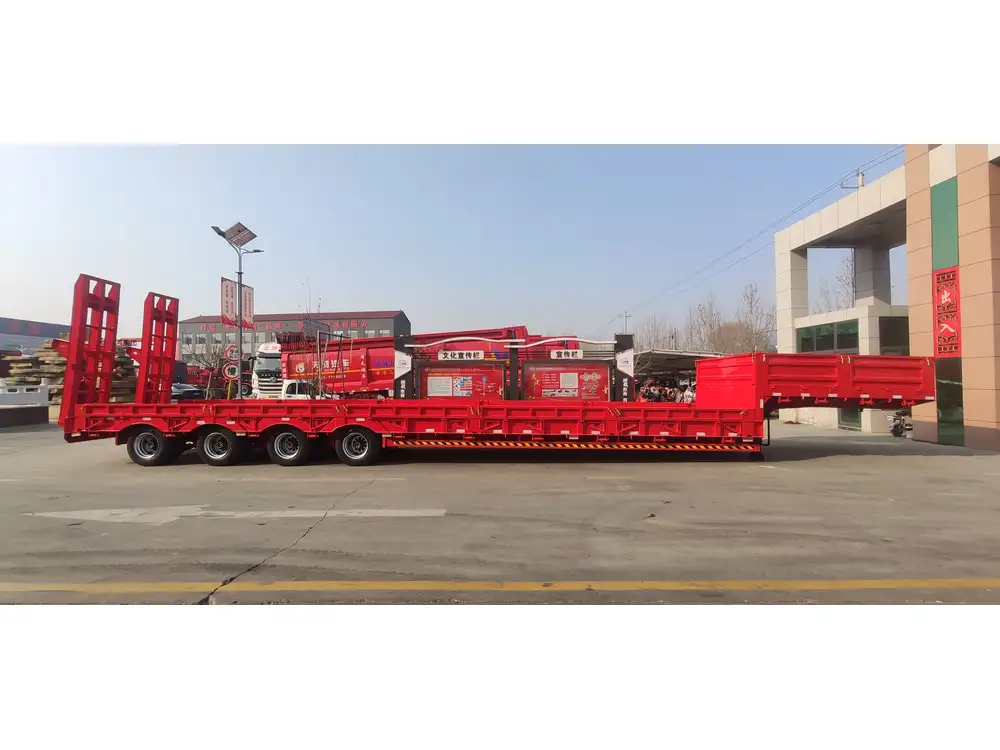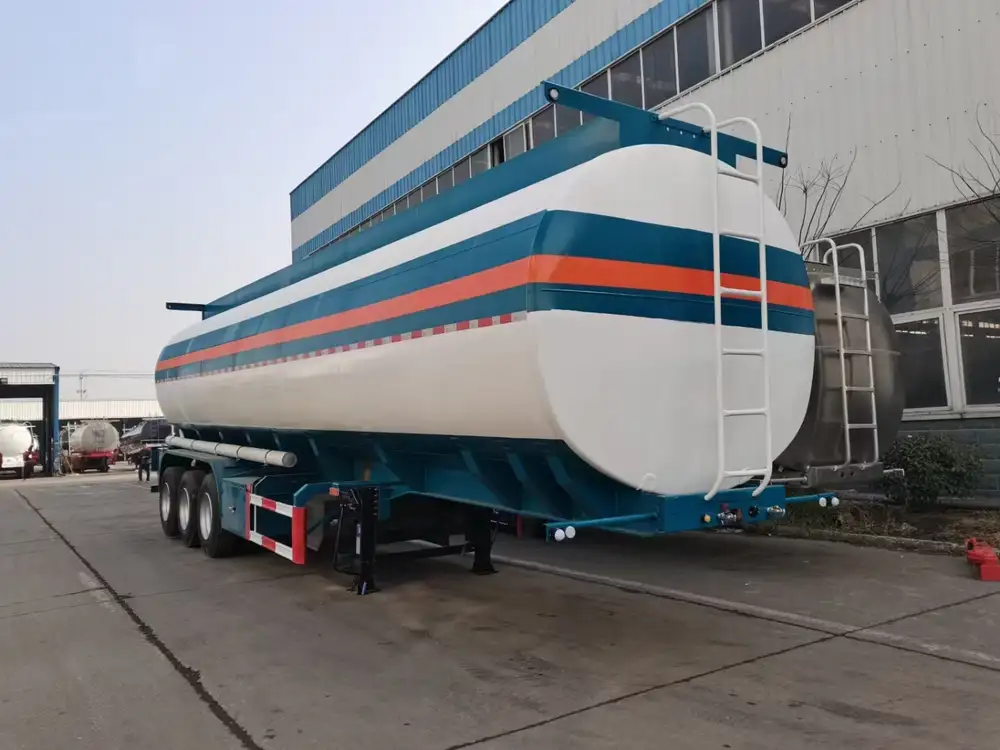When it comes to maintaining your dump trailer, one of the most critical considerations is the choice of hydraulic oil. The right hydraulic fluid not only ensures the smooth operation of the trailer, but also prolongs its lifespan, enhances efficiency, and minimizes costly repairs. This comprehensive guide is designed to answer common questions and provide detailed insights on selecting hydraulic oil that meets the demands of your dump trailer.
Understanding Hydraulic Systems in Dump Trailers
Before delving into the specifics of fluid selection, it is essential to understand how hydraulic systems function in dump trailers. These trailers utilize hydraulic cylinders to lift and lower the bed, powered by hydraulic fluid that transmits energy through the system.
Key Components of a Hydraulic System
| Component | Function |
|---|---|
| Hydraulic Oil | Transmits power; lubricates moving parts |
| Hydraulic Reservoir | Holds oil and provides a source for the hydraulic system |
| Pump | Generates flow and pressure to move the hydraulic fluid |
| Cylinders | Converts hydraulic energy into mechanical energy for operation |
| Valves | Control the flow and direction of the hydraulic fluid |
By comprehending these components, users can make informed decisions about the fluids that will optimize performance and effectiveness.

Types of Hydraulic Oil
Choosing a hydraulic oil involves understanding the various types available and their specifications. Here’s a brief overview:
Mineral Oil-Based Fluids
- Description: Derived from refining crude oil, these fluids are the most common type.
- Pros: Excellent lubrication properties, readily available, and cost-effective.
- Cons: Can degrade over time and may require more frequent changes.
Biodegradable Fluids
- Description: Made from renewable resources like esters, these oils are more environmentally friendly.
- Pros: Reduced environmental impact; meet increasing regulatory demands.
- Cons: Often more expensive than mineral oils and not always as effective in extreme conditions.
Water-Based Fluids
- Description: Contain a significant proportion of water; often used in specialized applications.
- Pros: Less flammable and safer for certain operations.
- Cons: Poor lubricating qualities and can cause corrosion in metal parts.
Recommendations
For dump trailers, mineral oil-based hydraulic fluids are typically recommended due to their superior lubricating properties and overall reliability in various temperatures and conditions.
Viscosity: A Critical Factor
Viscosity is crucial when selecting a hydraulic oil. It refers to the thickness of the fluid and its resistance to flow. The right viscosity ensures that the hydraulic system operates smoothly, regardless of temperature fluctuations.

Viscosity Grades
Hydraulic oils are often classified by their viscosity index (VI), such as ISO 32, ISO 46, and ISO 68. Here’s a comparison:
| Viscosity Grade | Temperature Range (°F) | Applications |
|---|---|---|
| ISO 32 | 15 – 100 | Ideal for colder environments |
| ISO 46 | 20 – 112 | Versatile; widely used in many trailers |
| ISO 68 | 40 – 120 | Suitable for warmer climates and heavy loads |
Choosing the Right Viscosity
Consider the operating conditions of your dump trailer, including ambient temperature and load characteristics, when selecting the viscosity grade. Consult the manufacturer’s specifications, as they often recommend specific grades for optimal performance.
Additives: Enhancing Performance
Hydraulic oils can contain various additives to improve their effectiveness:
- Anti-Wear Additives: Protect against metal-to-metal contact that can lead to wear and tear.
- Oxidation Inhibitors: Reduce the breakdown of oil, prolonging fluid life.
- Rust and Corrosion Inhibitors: Prevent rust formation on internal components.
- Foam Inhibitors: Minimize foam formation, which can impede performance.

Recommended Additives
When selecting hydraulic oil, consider options that include these additives for enhanced protection and performance, as they contribute to the longevity of both the oil and the hydraulic system.
How to Identify and Change the Hydraulic Oil
Identifying Hydraulic Oil Needs
To determine what hydraulic oil is currently in your dump trailer, check the user manual or look for specifications on the reservoir. If unknown, consider conducting a visual inspection:
- Color and Clarity: New hydraulic oil is typically clear or slightly amber. If the oil appears dark or contains particles, it may need to be changed.
- Odor: A burnt smell indicates overheating and potential degradation of the fluid.

Changing Hydraulic Oil: A Step-by-Step Guide
- Gather Supplies: Hydraulic oil, a container for old oil, funnel, rags, and safety equipment.
- Safety First: Ensure the trailer is on level ground, and set the brakes.
- Drain Old Oil:
- Locate the drain plug on the hydraulic reservoir.
- Position the container beneath the drain and carefully remove the plug.
- Replace Filter (If Applicable): If your system features a filter, consider replacing it simultaneously.
- Refill with New Oil:
- Use a funnel to pour the new hydraulic oil into the reservoir.
- Replace the drain plug securely.
- Test the System: Operate the dump trailer to circulate the fluid and check for leaks.
Maintenance Tips for Optimal Performance
Regular maintenance is integral to keeping your dump trailer in peak condition. Here are some essential tips:
- Routine Checks: Regularly inspect hydraulic lines for leaks, wear, or damage.
- Fluid Levels: Keep an eye on the fluid levels and top off as necessary.
- Temperature Monitoring: Ensure that the hydraulic system does not overheat. When temperatures rise above the recommended range, consider switching to a different fluid grade.
- Change Intervals: Follow manufacturer guidelines for fluid changes; typically suggested every 500 hours of operation or once a year, whichever comes first.
Common Hydraulic Oil Issues and Troubleshooting
Hydraulic systems can encounter problems if oil quality or levels aren’t maintained properly. Here are some common issues:
| Problem | Symptoms | Potential Solutions |
|---|---|---|
| Slow Cylinder Movement | Delayed response or sluggish operation | Ensure fluid levels are adequate; consider changing the oil. |
| Overheating | Increased operating temperature; burnt smell | Check cooling systems; switch to a higher viscosity oil. |
| Noise in the System | Unusual whining or grinding sounds | Potential air in the system; bleed out air pockets or check for low fluid levels. |
| Leaking Oil | Puddles under the trailer; drop in fluid levels | Inspect seals and hoses for damage; replace parts as needed. |

Conclusion
Choosing the correct hydraulic oil is a vital step in maintaining your dump trailer’s performance and reliability. With a variety of oils and considerations, understanding the components, viscosity ratings, and maintenance practices will empower you to make informed decisions. Following these guidelines not only extends the lifespan of your equipment but also ensures safe and efficient operation, eliminating many common issues related to hydraulic systems.
By prioritizing high-quality hydraulic oil designation and adhering to thorough maintenance practices, operators can maximize the value of their investment in dump trailers. Don’t overlook the significance of these recommendations — the longevity and performance of your hydraulic systems depend upon it.



